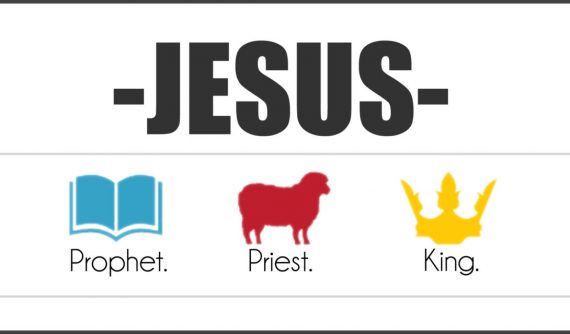In this podcast episode about Ephesians 1:2, we discuss the gun violence and the shooting in Boulder, CO this week, answer a question from a reader about the warning passages of Hebrews, and take a detailed look at Ephesians 1:2, in which we discover two of the greatest blessings we have from God. Take a listen!

Gun Violence in the USA
A short plea for clear thinking and fact-based conversations about gun violence in the United States. Don’t listen to the lies from the news about this. They have an agenda and will not give you the facts.
Question from a Reader about the Warning Passages of Hebrews
When I was 7 I “accepted Jesus”. I grew up in a pastor’s home but was never discipled. When I hit my college years, I became involved in sexual sin and alcohol. Unfortunately I was unfaithful to my wife and had bad language. I taught Sunday School and was a deacon. 9 years ago I had a severe breakdown. Then I read that people who only profess Christ and then fall away, according to Hebrews, were never really saved and now cannot be. I believed everything I taught, I loved the church and everything involved. It wasn’t until after the breakdown that I found the Hebrews passages and the teaching on the blasphemy of the Holy Spirit. I was mortified. I tried to repent but felt no relief. I believe I am forever lost because, according to Hebrews I spurned God’s grace and trampled. This crushed my heart because, even in sin, I was sharing the Gospel with relatives. I have never wanted others to go to hell, I have kids and grandkids. I want them to know Christ. I am 69 and terrified that I am now forever lost.
Here are few links from my website for further reading:
- Hebrews 6:1-8 and the Warning About Falling Away
- Do the warning passages of Hebrews 6:7-8 and Hebrews 10:27 refer to Christians going to hell?
- Hodges on Hebrews (Part 6)
Grace and Peace from God our Father (Ephesians 1:2)
Grace and peace to you from God our Father and the Lord Jesus Christ (Ephesians 1:2)
This podcast episode is drawn from my notes on Ephesians 1:1-2 here.
The text contains two blessings and two sources for these blessings.
A. Two Blessings in Ephesians 1:2
 First, he gives two blessings for believers. Grace and peace. This is the typical way that Paul starts almost all of his letters, but should not be ignored. Paul understood grace (Acts 9:1-18; 1 Tim 1:15-16). Paul, the chief of sinners, was chosen by God to share God’s grace to the Gentiles. Paul was the apostle of grace. He was the most qualified person to speak on grace.
First, he gives two blessings for believers. Grace and peace. This is the typical way that Paul starts almost all of his letters, but should not be ignored. Paul understood grace (Acts 9:1-18; 1 Tim 1:15-16). Paul, the chief of sinners, was chosen by God to share God’s grace to the Gentiles. Paul was the apostle of grace. He was the most qualified person to speak on grace.
So what is grace? What made Paul so excited to share about grace? Grace is God’s unmerited favor. It is the blessings of God poured out upon those who do not deserve it. To better help you remember what grace means, you can use the acrostic: G-R-A-C-E – God’s Riches At Christ’s Expense. Grace does not cost us anything. Grace is another favorite theme of Paul’s, and so he starts with grace.
Grace is the beginning and end of our life with Jesus Christ. Without grace we have nothing, and it is only by grace that we continue to live and walk with Jesus. This means that if you don’t understand grace, or have a weak view of grace (as most Christians do), you will never truly advance in your life as a disciple of Jesus. A proper understanding of grace is step one in the life of a disciple.
In my Gospel Dictionary entry on Grace, I taught this:
Grace is the key to every aspect of the gospel. Not the week-kneed, limp, powerless, feeble grace that you find in most Christian theology today, but the shocking, outrageous, scandalous, indiscriminate, senseless, irrational, unfair, irreligious, ridiculous, absurd, offensive, infinite grace which Jesus exhibited during His life and which is found everywhere in God’s activity toward humans. Biblical grace is so shocking, the only people who ever object to it are religious people who think that their behavior merits them some sort of special privilege or position with God. Such people are offended that the so-called “sinners” are put on equal footing. But this is exactly what God’s grace does, which is why the good news of grace is central to the gospel.
By grace, God loves all, forgives all, and accepts all, with no strings attached, no fine print, no qualifications, no limits, and no ongoing requirements. There is no amount of sin that can restrict the flow or find the limit of God’s grace.
The grace of God is so outlandish and foreign to every human way of thinking and living, it is absolutely impossible for any human being to place too much emphasis on grace. If I was required to preach and teach about only once concept for the rest of my life, I would choose the topic of grace. Of all the words in this Gospel Dictionary, grace is the most important, for without grace, there is no gospel. And while the same thing could be said about Jesus, grace existed before Jesus ever lived and died. Jesus came to reveal God’s grace to us, which means that when it comes to the gospel, grace preceded, spans, and follows the life of Jesus. The message of grace is the overarching theme of the gospel. It underscores every truth and ties every element together.
As I look at Christianity and see some of the problems that many people have with understanding Scripture, understanding God, understanding current events, or even in understanding and interacting with other humans beings, the one consistent truth I have found is that where there are the greatest problems with such things in Christianity, there is also the greatest failure to understand grace.
Once you understand grace, everything else falls into place.

That’s why it’s the first blessing Paul mentions, and why he always focuses so much on grace in his letters. Grace will be discussed in greater detail as we work our way through Ephesians.
The second blessing is peace. It is only because of God’s grace that we can have peace. Peace with God and peace with ourselves, and peace with others. Grace is the fountain from which the river of peace flows. In a world like ours, peace is a wonderful blessing for the saint of God.
Now peace is the great longing of this world. Everybody longs for peace, but nobody seems to know how to achieve peace. Most countries of the world think that peace comes through war. Isn’t that odd? It’s called the myth of redemptive violence. We think that if we can just kill enough of the bad people, then the good people will be able to live in peace with each other. So governments spend exorbitant amounts of time and money killing others in the name of peace. Of course, our enemies do the same toward us, and so the cycle of violence never ends.
But Jesus showed us a different way to achieve peace. And His way actually works. Paul will explain more of this as well in this letter to the Ephesians, especially in Ephesians 2. Just recognize for now that peace is also a rich blessing from God, and it is available to you and to the world through Jesus Christ.
This brings us to the two sources for these blessings. Grace and peace come to us from God our Father and the Lord Jesus Christ. It is interesting to note that these two sources of Christian blessing are also the two sources for Paul’s authority: he is an apostle of Christ Jesus, by the will of God, and our blessing comes from God and Jesus Christ (Ephesians 1:1).
Let’s talk about God the Father first. We take it for granted that we can talk to God as our Father. We take it for granted that we can pray directly to God without the help of a sacrifice of or a human, priestly mediator. When Jesus taught His disciples to pray, He invited them to pray to God as Father, and at that time, this was a shocking and revolutionary idea. Most people believed that in order to talk to God, you had to go to the temple, offer a sacrifice, and then communicate to God through a priest.
 But Jesus showed us that we can pray directly to God, and we can talk to Him as our Father. Paul is hinting at the same thing here. God is our Father, and as our Father, He loves us and cares for us, and only gives good gifts to us.
But Jesus showed us that we can pray directly to God, and we can talk to Him as our Father. Paul is hinting at the same thing here. God is our Father, and as our Father, He loves us and cares for us, and only gives good gifts to us.
This tell us, by the way, that if something bad happens in your life, it did not come from God. God only gives good gifts to His children. Bad things happen to us because we live in a sinful world. God our Father helps us get through these difficult and painful experiences, but He does not send these experiences upon us to punish us or hurt us. Get that idea out of your mind.
Here God our Father has given us grace and peace. There are many other blessings God has given to us, and some of these will be explained in more detail in the rest of Ephesians.
The second source of blessings, then, is our Lord Jesus Christ.
Sometimes people are confused when our Savior is addressed this way. Why are three names used? What do they mean? Briefly, the term Lord is a title—like King or President. The term Jesus is His actual name, and the term Christ is why He came—it reveals His mission to be the Messiah—the Savior of the world. Technically, Christ (or Messiah) is also a title, but it is used in a way to describe the mission of Jesus. I do have a lesson on the word “Christ” in my Gospel Dictionary as well.
While all of God’s blessings come from Him, they come through Jesus Christ. We are blessed with every spiritual blessings because Jesus brought them to us from God. Again, all of this will be explained in more detail through the rest of Ephesians, so we will leave further discussion for other texts.
We pick up next time with Ephesians 1:3 where Paul begins to explain further blessings and riches that are ours in Jesus Christ.


 The word
The word 

 So when we read about Jesus Christ in the Bible, or when we read about how Christians are in Christ, it is important to not over-spiritualize word Christ, but instead to recognize that a statement is being bad about the Lordship and Mastery of Jesus over all things.
So when we read about Jesus Christ in the Bible, or when we read about how Christians are in Christ, it is important to not over-spiritualize word Christ, but instead to recognize that a statement is being bad about the Lordship and Mastery of Jesus over all things. However, John did not write this Gospel account only for unbelievers. While he emphasizes over and over how a person can believe in Jesus for eternal life, John also knows that God wants much more for us than to just believe in Jesus.
However, John did not write this Gospel account only for unbelievers. While he emphasizes over and over how a person can believe in Jesus for eternal life, John also knows that God wants much more for us than to just believe in Jesus.


 When Paul writes about being anathema from Christ, he is not stating a desire to be eternally cut off or separated from Jesus, but is instead stating his desire, if it were possible, to give up his life and his ministry within the Kingdom of God if such a sacrifice would help Israel come to the knowledge that Jesus is the Messiah.
When Paul writes about being anathema from Christ, he is not stating a desire to be eternally cut off or separated from Jesus, but is instead stating his desire, if it were possible, to give up his life and his ministry within the Kingdom of God if such a sacrifice would help Israel come to the knowledge that Jesus is the Messiah.

 But in the face of this grotesque depiction of a manmade-God, God has been trying to show us since the very beginning in Genesis 1, that He is a God of light, love, hope, healing, mercy, grace, and forgiveness. As a result of God’s eternal love, He created human beings so that we might love Him in return. He wants our love, but knowing that He cannot force love, He woos us and invites us and calls us to Him, but we, being the worst of all possible lovers, slander His name, drag Him through the mud, tie Him up in a dark corner, and eventually even crucify Him on a barren hill. And all the while we declare that it is God Himself telling us to do these things.
But in the face of this grotesque depiction of a manmade-God, God has been trying to show us since the very beginning in Genesis 1, that He is a God of light, love, hope, healing, mercy, grace, and forgiveness. As a result of God’s eternal love, He created human beings so that we might love Him in return. He wants our love, but knowing that He cannot force love, He woos us and invites us and calls us to Him, but we, being the worst of all possible lovers, slander His name, drag Him through the mud, tie Him up in a dark corner, and eventually even crucify Him on a barren hill. And all the while we declare that it is God Himself telling us to do these things. If the Christ is the Suffering King who bleeds and dies for His enemies, who loves and accepts all, and who has no desire to control others but only to serve them, then any “Christ” which is used to defend war and violence toward enemies, to reject and divide from others, and to control and manipulate others for personal gain, is the anti-Christ.
If the Christ is the Suffering King who bleeds and dies for His enemies, who loves and accepts all, and who has no desire to control others but only to serve them, then any “Christ” which is used to defend war and violence toward enemies, to reject and divide from others, and to control and manipulate others for personal gain, is the anti-Christ. 
 Before Jesus came (and in fact, even today) when Jewish people read their Hebrew Scriptures and saw a violent God doing violent things, they projected this onto their expectations for what the Messiah would be and do when He finally came. They saw a violent God, and so were looking for a violent Messiah. They wanted a Messiah who would throw off Roman rule, would slay the enemies, kill the wicked, and banish all the unrighteous into eternal pits of darkness and gloom.
Before Jesus came (and in fact, even today) when Jewish people read their Hebrew Scriptures and saw a violent God doing violent things, they projected this onto their expectations for what the Messiah would be and do when He finally came. They saw a violent God, and so were looking for a violent Messiah. They wanted a Messiah who would throw off Roman rule, would slay the enemies, kill the wicked, and banish all the unrighteous into eternal pits of darkness and gloom.